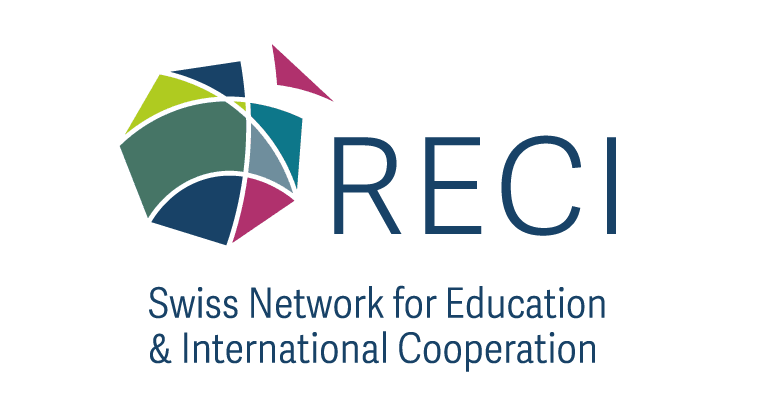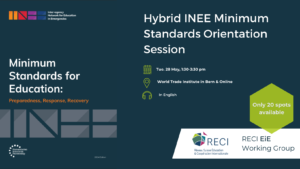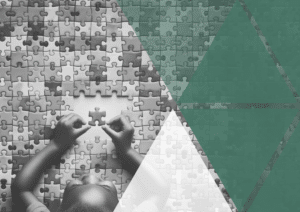On 30 September 2021, RECI and NORRAG hosted the launch and online discussion of the study “The Education – Training – Decent Work Continuum” The study examines the Continuum approach to tackle discontinuities between the education, training, and work fields through a selection of different projects by RECI members. The Continuum approach proposed in the study aims to overcome these discontinuities by enabling learners to move between education, training, and work at any point in their lives and in any order. The inequalities and exclusions resulting from discontinuities in learning and work biographies can be observed in all countries.
Michel Carton, Senior Advisor at NORRAG and Professor Emeritus, Graduate Institute, Geneva, opened the event by discussing the development of our profession of education, training, and the workplace. He described three short case studies, as well as the theory behind the idea of the continuum: “a continuum is a set of elements that are inseparable, change is gradual without any clear division.”
The case studies included in Benin in the 1980s, primary schools contained workshops with local craftsmen who taught the basics of woodworking in order to establish an income. The objective was to promote labour market integration; in Côte d’Ivoire, Prof Carton described the provisions of literacy training in order to improve quality of work and allow people to be more mobile; finally in Benin, the third case study described training for people in active everyday life, including parents, civil servants and children.
Learning, Training, and Work are the three words that continue to interact but gradually become compartmentalized and less inclusive. Michel Carton discussed the need for the movement between learning, training, and work to be facilitated in order to prevent inequalities and exclusions. The difficulty in moving within the continuum had created entry barriers for those who lack entry requirements, and it is often difficult to catch up if someone lags behind.
Opening remarks were followed by a discussion with the audience about questions including linking the continuum to the broader education system; how to find the balance between work and training; what is the position of politicians in training and in the continuum; and how do we explicitly involve the continuum in the question of teacher education and teacher training?
The event consisted of three workshops with participants asked to discuss the following question: in your context, how could a continuum-oriented perspective be useful. There were three choices of workshops:
- Learning to work transitions of youth in the informal economy in Africa (Christine Hofmann, International Labour Organization) (Workshop in English)
- Intergenerational approach to education and training for socio-professional inclusion (François Niada, Helvetas, Sapiens) (Workshop in French)
- The Continuum in the Geneva system: what transitions to prevent or remedy discontinuities that youth are facing? Natacha Juda: Conseil Interprofessionnel pour la Formation (Geneva) and Yves Chardonnens: Espace Entreprise – Centre de formation professionnelle à la pratique commerciale (Geneva) (Bilingual Workshop)
Each chair reported the content and main ideas of their workshop discussions.
All three workshops discussed the question: In your context, how could a continuum-oriented perspective be useful? The results of the workshop discussions were presented in plenary, after which the workshop leaders then individually discussed the content and main ideas of their workshop discussions.
François Niada stated that the notion of the continuum seems to be implicit in some programmes. He added that there is a need for strategies to be discussed in the political space to consider the continuum and to cross the bridges between education, training, and work. The gender dimension should also be taken into account as the transfer of knowledge from men to women and women to men should be added to the discussion. There is a need to create a space for dialogue to increase and deepen discussion on the continuum.
Natacha Juda and Yves Chardonnens discussed the training and work continuum by providing the example of vocational training in Switzerland. They looked at measures put forward to fight disruptions in the Continuum and discussed the importance of the dialogue between different stakeholders, which allow them to have a more general approach and a more global view.
Christine Hofmann discussed how learning takes place in the informal economy, the apprenticeship system, and the transition into this apprenticeship system. Additionally, she discussed what the benefits are of formalising and moving away from strong dichotomy of different dimensions, and how public policy should better recognise and measure the learning that takes place in the informal economy.
Closing Remarks by Crain Soudien (former Professor of Education and African Studies and former Deputy Vice Chancellor, University of Cape Town and at present member of NORRAG Consultative Committee)
In the closing remarks, Crain Soudien discussed the conceptual value of putting the idea of a Continuum in front of us, and examining the complexities of the informal sector, especially in the South. The conceptual contribution is deeply important: the divides between education, training, and work are problematic, and the Continuum gives a way of talking about the experience in its actuality. Crain discussed the difficulty in measuring the metrics of the informal sector, and how the Continuum has the power to reduce the gap in formal and informal sectors, allowing us to see new realities that have emerged in front of us. Therefore, he encouraged engaging in critical dialogue to combat the notions of inferiority and superiority in this discussion of the Continuum between education, training and decent work.
Read the Concept Note circulated before the event – en français Note Conceptelle
The study The Education – Training – Decent Work Continuum is available in NORRAG Resource Library
In 2019, a preliminary report to the study was produced by NORRAG and RECI, please read the study here


